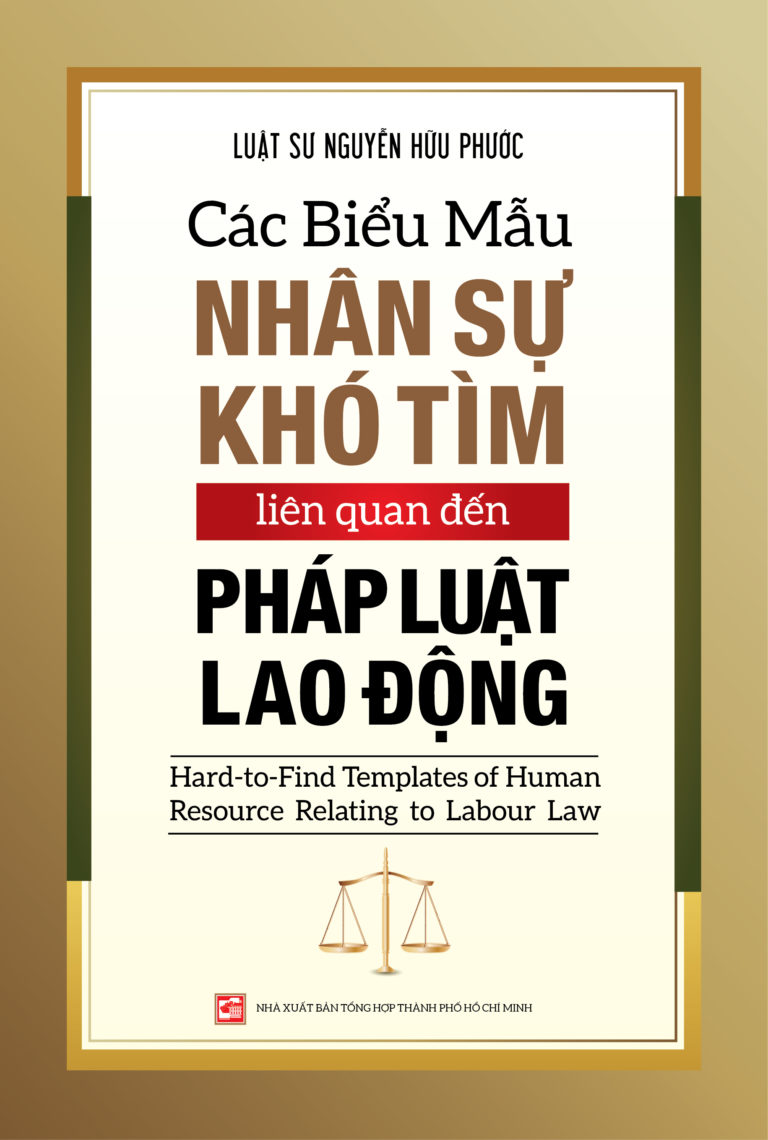Tightening Activities of Cross-Border Online Advertising
(Dang Thi Van Anh and Le Nu Thanh Minh – Phuoc & Partners)
Advertising on cross-border online platforms is growing rapidly in Vietnam, in which, cross-border advertising (“CB Advertising”) on Facebook and Youtube are the two most popular online advertising channels[1]. However, the regulations on CB Advertising of Decree 181/2013/ND-CP of the Government (“Decree 181”) elaborating on some articles of the Law on Advertising is outdated and no longer effective in management of these activities. Therefore, Decree 70/2021/ND-CP (“Decree 70”), amending and supplementing Decree 181 was issued and took effect from 15 September 2021.
Expanding the governing scope and subjects
Decree 181 defines websites of foreign organisations and individuals providing the CB Advertising services as websites operating from servers located overseas to provide advertising information to users in Vietnam[2]. A website is one page or a collection of web pages in the network environment for the provision and exchange of information[3]. Currently, Decree 70 provides a more specific definition of the website of foreign organisations and individuals trading in CB Advertising services, thereby expanding the scope of identifying platforms providing the CB Advertising services, to be in line with the rapid and diverse development of online platforms. Specifically, websites providing the CB Advertising services under the Decree 70 are information systems that use one or more websites in the form of symbols, numbers, letters, images, sounds and other forms to provide network users with services of storing, providing, using, searching, exchanging information, sharing audio and images, creating forums, live chat to provide advertising services[4].
In addition to expanding the governing scope, Decree 70 also expands the subjects of application and binds more liabilities to these subjects when providing the CB Advertising services in Vietnam. Specifically, Decree 70 sets out liabilities for all parties involved in advertising services, including foreign organisations and individuals trading in the CB Advertising services in Vietnam, local advertising service providers, and local and oversea advertising publishers and advertisers[5]. This is an improvement compared to Decree 181 which mainly regulates two subjects, which are website owners of foreign organisations and individuals trading in the CB Advertising services in Vietnam and advertising service providers in Vietnam.
Increasing the liability of the parties
The advertising publishers or the advertisers, when entering into advertising contracts with individuals or organisations providing the CB Advertising services, must request such CB Advertising providers to provide them with technical solutions for monitoring and removing advertising products that violate Vietnamese laws on the advertising service systems[1]. However, in respect of the effectiveness of management, this is not a strict provision as Decree 70 has no provision that requires the CB Advertising service providers to provide the technical solutions to monitor and remove infringing advertising contents. Thus, this provision can be understood that the advertising publishers and the advertisers are only obliged to request but the performance of request is subjected to the “goodwill” of the CB Advertising service providers. In other words, if the parties have agreed in the contract that the CB Advertising service provider has the obligation to provide technical solutions but the CB Advertising service provider refuses to perform, this is considered as a breach of contract and will be resolved according to the agreement in the contract like other contract disputes. As a result, it is difficult for competent State authorities to intervene if the parties have not agreed in the contract. Any sanction also cannot be applied to these subjects since up to now, there is no regulation on handling such failure of the CB Advertising service providers. Thus, the addition of regulations on the obligation to provide technical solutions to monitor and remove infringing advertising as well as sanctions for handling such infringement of CB Advertising service providers is expected like a “right as a trivet” position, solving the lack of rigidity of legal regulations as well as contribute to promoting effectiveness on the management and control of the CB Advertising activities of the competent authorities.
Decree 70 also requires the foreign organisations and individuals trading in CB Advertising services in Vietnam to prevent and remove contents that violates Vietnamese laws within 24 hours of receiving a request from the Ministry of Information and Communications (“MIC”)[2]. This is one of the new points of Decree 70, contributing to concretising and increasing the liability of the CB Advertising service providers and the management responsibility of the competent authorities for this activity. However, these regulations still have some points to be further discussed.
Firstly, the liability to prevent and remove infringing information is only performed once the CB Advertising service providers receive a request from the MIC. This process starts from the liability of detecting and identifying the infringement of CB Advertisings of ministries and local authorities assigned as regulated in legal documents on management and sanctioning of administrative violations in the field of advertising, then these authorities will notify the MIC for checking, reviewing and issuing a request of handling[3]. Practically, the inspection of the competent authorities from the local to the central level sometimes fails to keep up with the rapid development of the CB Advertising activities on online platforms, so the infringing advertisements may be missed to be handled due to not timely detection and handling. Therefore, it is necessary for the competent authorities to guide specifically in methods of reporting and receiving feedbacks of infringing advertisements directly from users of the websites (advertisement receivers) to quickly and fully detect infringing advertisements. Such specific and clear guidelines are expected to help advertisement receivers perform their rights to complain and denounce as prescribed by law[4] and help the competent authorities implement their power in settling complaints, denunciations, and handling violations[5] more effectively.
Secondly, as above-mentioned, the screening and handling of infringing advertising contents must involve the detection and identification of violations and then reviewing and inspecting by the competent authorities. Decree 70 stipulates in general that business entities must comply with Vietnamese laws[6], but does not provide a specific regulation forcing individuals and organisations providing CB Advertising services to proactively review and remove infringing contents on their platforms. Since there is no specific regulation of responsibility and sanctions, in practice, these individuals and organisations rarely voluntarily, proactively review and remove infringing advertising contents on their platforms. Referring to Decree 52/2013/ND-CP on E-commerce, guided by Circular 47/2014/TT-BCT, which also manages e-commerce activities, it can be seen that this decree provides clear provisions on responsibility of the service provider of the e-commerce platform – an intermediary unit providing a business platform between the sellers and the buyers. Accordingly, the e-commerce platform service providers are responsible for preventing and removing from the website any information on selling goods and services that is prohibited or restricted from doing business in accordance with the laws and information on selling fake goods, counterfeit goods, smuggled goods, et cetera, as well as violating other laws when detecting or receiving complaints[7]. Decree 98/2020/ND-CP on sanctioning of administrative violations in commercial activities, production and trading of counterfeit and prohibited goods and protection of consumer interests also sets out sanctions if the e-commerce platform service providers violate these responsibilities. This forces the e-commerce platform service providers to proactively prevent, review and remove infringing contents on their e-commerce platforms before receiving a direct request from the competent authorities or reports of violations. Thus, specifying the responsibility to proactively review and remove infringing advertising contents of individuals and organisations doing CB Advertising services and sanctions for handling violations is essential to build a proactive and safe business environment, improve efficiency in the management of CB Advertising activities.
Directly managed by the Ministry of Information and Communication
According to Decree 70, the MIC shall directly manage, receive notifications before conducting advertising by related entities, receive periodical reports, as well as handle violations on the CB Advertising activities. According to Decree 181, the MIC is assigned to manage online advertising[8], but the Ministry of Culture, Sports and Tourism is the authority directly receiving notifications before the advertising is conducted[9]. Thus, the implementation of regulations on the CB Advertising has not been consistent and synchronous. Specifically regulating that the MIC is the authority who is solely and directly responsible to manage the CB Advertising activities is expected to clearly decentralise the management between the Ministry of Culture, Sports and Tourism and the MIC and improve the efficiency of State management as well.
In addition to the right to inspect and request individuals and organisations providing the CB Advertising services to remove infringing contents, the MIC also has the power to enforce measures to ban illegal advertisements when these violations are not handled as per the request without a legitimate reason. The MIC also has the right to immediately take measures against the infringing CB Advertising that affecting Vietnam’s national security[10]. This is considered as one of the important provisions of Decree 70 which initiatives the competent authorities into proactively controlling advertising contents released in Vietnam, especially in the context that it is burdensome to manage the CB Advertising activities when most of the CB Advertising platform owners do not have a commercial presence in Vietnam.
Besides, individuals and organisations participating in the CB Advertising activities should also note that according to Decree 70, the MIC will publish the information about infringing advertising on the website of the MIC. In addition, the advertising service providers, advertising publishers, and advertisers are not accepted to cooperate in publishing advertising products with these infringing websites[11].
Issues in tax payment
Circular 103/2014/TT-BTC of the Ministry of Finance stipulates that the foreign organisations and individuals who earn incomes from Vietnam, with or without a permanent establishment in Vietnam, are subject to foreign contractor tax except for cases where tax is not required. The Law on Tax Administration 2019 also stipulates that for digital-based business activities and other services performed by an overseas supplier without a permanent establishment in Vietnam, these foreign service providers are obliged to directly perform or authorise other entities to do tax registration, tax declaration and tax payment in Vietnam according to regulations of the Ministry of Finance[12]. Thus, for organisations and individuals participating in the CB Advertising activities that generate income from Vietnam but do not have commercial presence in Vietnam, Vietnamese laws has a common legal framework for taxing these entities. However, tax arrears for these entities are difficult to implement in practice due to the absence of specific regulations on how to administrate income earned from Vietnam, as well as sanctions for dealing with infringing entities in the context that these subjects do not have a business establishment in Vietnam. In the near future, the draft Circular of the Ministry of Finance, guiding the implementation of a number of articles of the Law on Tax Administration 2019, is expected to be issued, which will overcome this problem when concretising regulations on the responsibilities of foreign contractors in the registration, declaration and payment of taxes in Vietnam for digital-based business activities, as well as stipulating measures to administrate cash flow, revenue, and sanctions for violations of tax obligations.
In general, although there are not many new and stricter regulations, Decree 70 has contributed to concretising and increasing the implementation of the CB Advertising activities. The amended and supplemented regulations in Decree 70 also aim to strictly control the contents and the operation of advertising accounting for the majority of the advertising market share in Vietnam. It is possible that in the near future, regulations on sanctioning administrative violations in the CB advertising activities will be amended in harmony with the new regulations under Decree 70 when the responsibilities and obligations of the parties involved in this activity are set out tougher than the Decree 181. The changes of Decree 70 are also expected to help protect consumers, and at the same time make the advertising environment on online platforms and social network platforms “cleaner” and safer.
[1] Adsota, Vietnam Digital Advertising Report 2019.
[2] Article 13.1, Decree 181.
[3] Article 4.17, Law on Information Technology 2006.
[4] Article 13.2, Decree 181 as amended by Article 1.1, Decree 70.
[5] Article 13, Decree 181 as amended by Article 1.1, Decree 70
[6] Article 13.5(b), Decree 181 as amended by Article 1.1, Decree 70.
[7] Article 13.4(c) and Article 14.2, Decree 181 as amended by Article 1.2, Decree 70.
[8] Articles 14.1 and 14.2, Decree 181 as amended by Article 1.2, Decree 70.
[9] Article 16.4, Law on Advertising.
[10] Article 4.8, Law on Advertising.
[11] Article 13.3, Decree 181, as amended by Article 1.1, Decree 70.
[12] Article 36.8, Decree 52/2013/ND-CP and Article 4.3 and Article 4.4, Circular 47/2014/TT-BCT.
[13] Article 27.1(a), Decree 181.
[14] Article 14, Decree 181.
[15] Article 14.2, Decree 181 as amended by Article 1.2, Decree 70.
[16] Articles 13.6 and 14.2, Decree 181 as amended by Articles 1.1 and 1.2, Decree 70.
[17] Article 42.4, Law on Tax administration 2019.










